Kopernik Public Programs: Spring 2025
Doors Open at 7:30 pm | Programs Start at 8:00 pm
In addition to on-site presentations,
Kopernik livestreams these programs on our YouTube Channel
The following programs are on Friday nights unless otherwise noted:
Friday, March 7, 8:00 PM
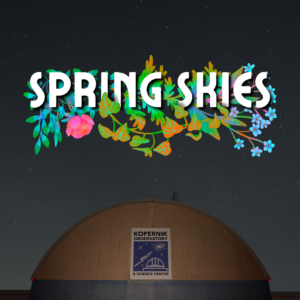 Kopernik’s Livestream Astronomer, Jenny Cartie, will show you how to identify constellations and planets in the spring sky, and how to spot the International Space Station. Free star maps will be provided. If you have your own telescope, bring it with you and a Kopernik Astronomical Society member will help you learn how to assemble it and use it. After the program, head outside to view the night sky through Kopernik’s telescopes.
Kopernik’s Livestream Astronomer, Jenny Cartie, will show you how to identify constellations and planets in the spring sky, and how to spot the International Space Station. Free star maps will be provided. If you have your own telescope, bring it with you and a Kopernik Astronomical Society member will help you learn how to assemble it and use it. After the program, head outside to view the night sky through Kopernik’s telescopes.Friday, March 14, 8:00 PM
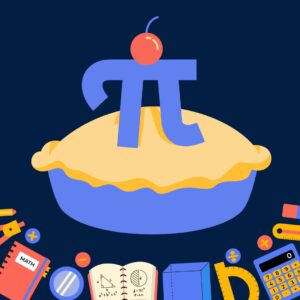 This Pi Day workshop involves an exploration into three mathematical areas. We re-visit the game of Tic-Tac-Toe with a new approach and learn how to apply mathematics to a variation of the traditional game. We will discuss a mathematical ‘paradox’ involving sums of numbers. Finally, we will discover a familiar (to some) irrational number using a less common technique.
This Pi Day workshop involves an exploration into three mathematical areas. We re-visit the game of Tic-Tac-Toe with a new approach and learn how to apply mathematics to a variation of the traditional game. We will discuss a mathematical ‘paradox’ involving sums of numbers. Finally, we will discover a familiar (to some) irrational number using a less common technique.Friday, March 21, 8:00 PM
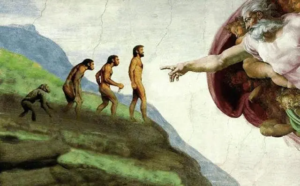 Come explore: (1) the all-too-often, needlessly contentious relationship between evolution-informed science & religion and (2) related real-world relevant insights into the human quest for individual and collective happiness. Consilience of Judeo-Christian and scientific perspectives will explain our dual dispositions to be selfish and even evil, as well as self-sacrificing and ethical. This talk will be presented by Dr. Thomas O’Brien, professor of Science Education at Binghamton University.
Come explore: (1) the all-too-often, needlessly contentious relationship between evolution-informed science & religion and (2) related real-world relevant insights into the human quest for individual and collective happiness. Consilience of Judeo-Christian and scientific perspectives will explain our dual dispositions to be selfish and even evil, as well as self-sacrificing and ethical. This talk will be presented by Dr. Thomas O’Brien, professor of Science Education at Binghamton University.Venus and Lucifer: Astronomy, Mythology, and the Keeping of Time
Peter Klimas, Physics Teacher, Vestal High School
Friday, March 28, 8:00 PM
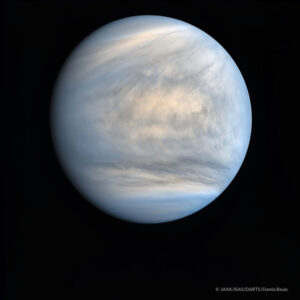 The brightest light in the sky is our Sun. The second brightest light in the sky is our Moon. The third brightest light in the sky is the devil himself, Lucifer, morning star, light bringer, Venus. Come gather at Kopernik Observatory and learn what eight-fifths has to do with Venus. Come hear stories from religion and myth about the mysterious motions of this god in the sky. Make a wish on the evening star, or on the last light left in the morning after all others have faded away. Come and learn of this herald of the dawn.
The brightest light in the sky is our Sun. The second brightest light in the sky is our Moon. The third brightest light in the sky is the devil himself, Lucifer, morning star, light bringer, Venus. Come gather at Kopernik Observatory and learn what eight-fifths has to do with Venus. Come hear stories from religion and myth about the mysterious motions of this god in the sky. Make a wish on the evening star, or on the last light left in the morning after all others have faded away. Come and learn of this herald of the dawn.
Fermi Paradox: Are We Alone?
Dr. Stanley Hunter
Friday, April 4, 8:00 PM
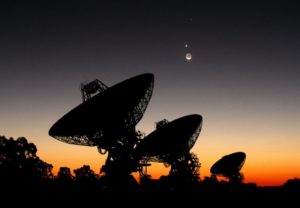 Physicist Enrico Fermi observed that the size and age of the universe suggests there should be many advanced alien civilizations, and they should have had plenty of time to visit us. “So,” he asked, “where are they?” The answer has momentous implications for whether we are alone, the nature of our universe, and the future of humanity. Scientists and thinkers have attempted to answer his question with logic, observation, and experiment. Join us for a journey through the history and hypotheses of the Fermi Paradox.
Physicist Enrico Fermi observed that the size and age of the universe suggests there should be many advanced alien civilizations, and they should have had plenty of time to visit us. “So,” he asked, “where are they?” The answer has momentous implications for whether we are alone, the nature of our universe, and the future of humanity. Scientists and thinkers have attempted to answer his question with logic, observation, and experiment. Join us for a journey through the history and hypotheses of the Fermi Paradox.
AI for All: Nurturing Young Curiosity & Shaping Global Futures
– Dr. James Pitarresi Binghamton University Vice Provost for Online and Innovative Education
Friday, April 11, 8:00 PM
 Artificial intelligence is revolutionizing learning – from engaging early childhood experiences to supporting education, and research and sparking societal transformation. Attendees will see practical examples and live demonstrations showing how AI can inspire creativity at home and in the classrooms and drive innovation in higher education. The presentation will briefly touch upon broader issues, including ethical considerations, future AI trajectories, and the potential societal impacts of AI. Whether you’re an educator, parent, or policy influencer, join us to discover how AI is not only enhancing learning but also shaping our collective future.
Artificial intelligence is revolutionizing learning – from engaging early childhood experiences to supporting education, and research and sparking societal transformation. Attendees will see practical examples and live demonstrations showing how AI can inspire creativity at home and in the classrooms and drive innovation in higher education. The presentation will briefly touch upon broader issues, including ethical considerations, future AI trajectories, and the potential societal impacts of AI. Whether you’re an educator, parent, or policy influencer, join us to discover how AI is not only enhancing learning but also shaping our collective future.
Casual Evening of Night Sky Observing
Friday, April 18, 8:30 PM
 There will be no formal program this evening. Kopernik will be open however for an evening of night sky observing through our telescopes. There will be no Moon in the evening sky so it will be a great night to view galaxies, nebula, satellites, and even meteors. If you have a telescope, bring it up and a member of the Kopernik Astronomical Society will help you set it up.
There will be no formal program this evening. Kopernik will be open however for an evening of night sky observing through our telescopes. There will be no Moon in the evening sky so it will be a great night to view galaxies, nebula, satellites, and even meteors. If you have a telescope, bring it up and a member of the Kopernik Astronomical Society will help you set it up.
Quantum Cosmos: How the smallest things explain the biggest things
Zoe Learner Ponterio, Manager, Spacecraft Planetary Image Facility Cornell University
Friday, April 25, 8:00 PM
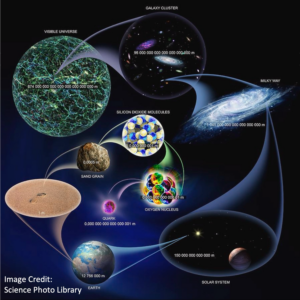 We know many fundamental things about the universe – that it is expanding, that it had a beginning, and what it is made of. But even more interesting is HOW we know it, especially without video footage showing the Big Bang or the motion of the galaxies as they drift apart, and, except for the inner Solar System, without samples to analyze in a laboratory. If the laws of nature are the same across space and time (and that’s a pretty big if), we can understand quite a lot about the universe by studying its most basic building blocks. Join us for a journey starting in the quantum realm and zooming out to the entire cosmos.
We know many fundamental things about the universe – that it is expanding, that it had a beginning, and what it is made of. But even more interesting is HOW we know it, especially without video footage showing the Big Bang or the motion of the galaxies as they drift apart, and, except for the inner Solar System, without samples to analyze in a laboratory. If the laws of nature are the same across space and time (and that’s a pretty big if), we can understand quite a lot about the universe by studying its most basic building blocks. Join us for a journey starting in the quantum realm and zooming out to the entire cosmos.How to Make a Winning Robot
Saints Robotics
Friday, May 2, 8:00 PM
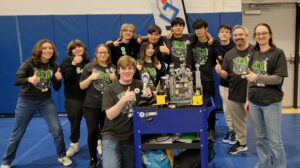 Saints Robotics from Seton Catholic Central in Binghamton, a state-qualifying team, will explain about the various robotics programs that they are involved in. They will describe what a robot is, how to create a robot, and demonstrate how the robots work. They’ll talk about the current club and the roles that members contribute to the team. Additionally, members of the audience will get the chance to interact and drive some of these robots
Saints Robotics from Seton Catholic Central in Binghamton, a state-qualifying team, will explain about the various robotics programs that they are involved in. They will describe what a robot is, how to create a robot, and demonstrate how the robots work. They’ll talk about the current club and the roles that members contribute to the team. Additionally, members of the audience will get the chance to interact and drive some of these robots
Drew Williams, Southern Tier Robotics
Friday, May 9, 8:00 PM
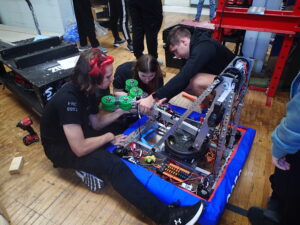 Get an up-close look at the latest robot designed by the Southern Tier Robotics team. Their robot performs autonomous and radio-controlled actions to accomplish a number of tasks in a multi-team competition. Students on the team will demonstrate the robot, show a video from their recent competition in Albany and Pittsburgh, and answer questions about the robot’s design and operation.
Get an up-close look at the latest robot designed by the Southern Tier Robotics team. Their robot performs autonomous and radio-controlled actions to accomplish a number of tasks in a multi-team competition. Students on the team will demonstrate the robot, show a video from their recent competition in Albany and Pittsburgh, and answer questions about the robot’s design and operation.
Make sure to subscribe to receive notifications of live events.
Public Admission
$6.00 adults
$4.00 seniors/students
$20.00 family maximum
Group rate (10 or more): $4 adult, $3 senior/student
Kopernik / ASTC Passport Members: Free
If the skies are not clear, you will receive a free pass to come back on another night.
You just can’t lose coming to Kopernik on a Friday night.
Public Programs Seasonal Hours
|
Months
|
Doors Open
|
Public Program
|
|
March – May
|
7:30 PM
|
8:00 PM
|
|
June – July
|
8:00 PM
|
8:30 PM
|
|
August – November
|
7:30 PM
|
8:00 PM
|
|
December – February
|
6:30 PM
|
7:00 PM
|
|
|
